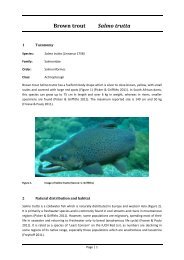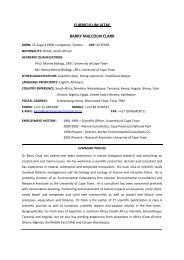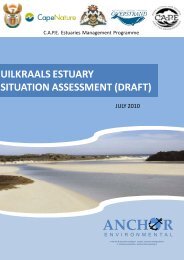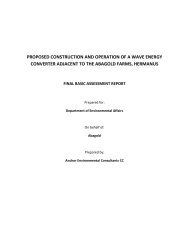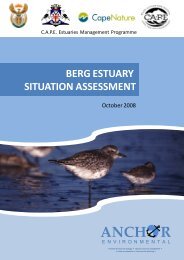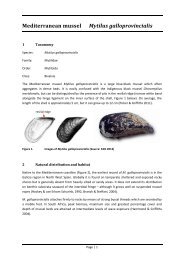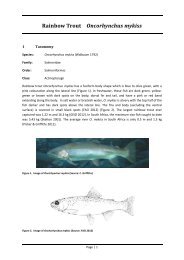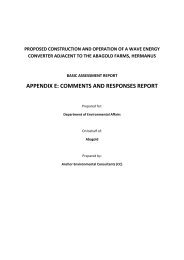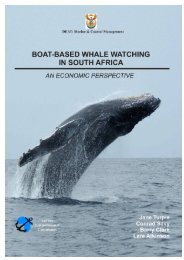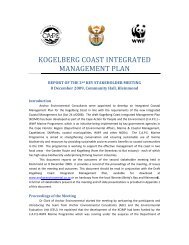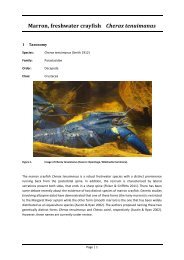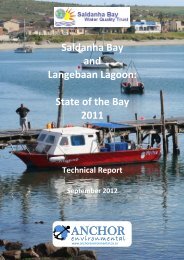Download PDF - Anchor Environmental
Download PDF - Anchor Environmental
Download PDF - Anchor Environmental
Create successful ePaper yourself
Turn your PDF publications into a flip-book with our unique Google optimized e-Paper software.
comprised of smooth fine grained sandy beaches which continue on to Pearly Beach. The<br />
Uilkraals catchment is also important as a Fynbos biodiversity hotspot, containing important<br />
strands of remnant undisturbed fynbos. A number of places have reported the occurrence of<br />
red data species, in addition a number of flower harvesting and processing centres are located<br />
in the catchment, for example Concordia and Niewedam (van der Merwe 2008).<br />
Figure 14. Uilkraals Estuary (which is now closed to the sea) with the Uilenkraalsmond Holiday Resort<br />
situated at the mouth (inside red box). Source: Google Earth.<br />
Recreational use of estuaries is significant in South Africa, with an estimated total of 67 000<br />
recreational anglers and 5700 cast netters (Turpie & Clark 2007). Although this activity is<br />
relatively small in the Uilkraals Estuary area and on the coast, recreational angling (mainly<br />
shore angling) is carried out by many of the locals and visitors to the area. The bulk of the<br />
Uilkraals Estuary linefish catch is made within 500 m of the mouth. The total fishing effort for<br />
the Uilkraals Estuary is 2.1 tonnes, which is considerably less when compared to the Klein (80<br />
tonnes), the Bot (70 tonnes) and the Heuningnes (10 tonnes; Lamberth & Turpie 2003).<br />
The economic value of the recreational fishery can be considered in terms of the expenditure<br />
on fishing by recreational fishers (i.e. the income to subsidiary industries such as<br />
accommodation and fuel). While the commercial and traditional fisheries are forms of<br />
generating cash or subsistence income, and are largely valued in terms of the market value of<br />
their catches, the value of recreational angling does not lie mainly in the market value of the<br />
fish caught. Recreational anglers value the sport and experience, and expend considerable<br />
sums on this activity, largely irrespective of their catch returns (McGrath et al. 1997). The<br />
value attributed to this fishery is mostly in terms of gains to subsidiary industries that benefit<br />
from angler expenditure (McGrath et al. 1997).<br />
Uilkraals Estuary Situation Assessment<br />
39<br />
<strong>Anchor</strong> <strong>Environmental</strong>



